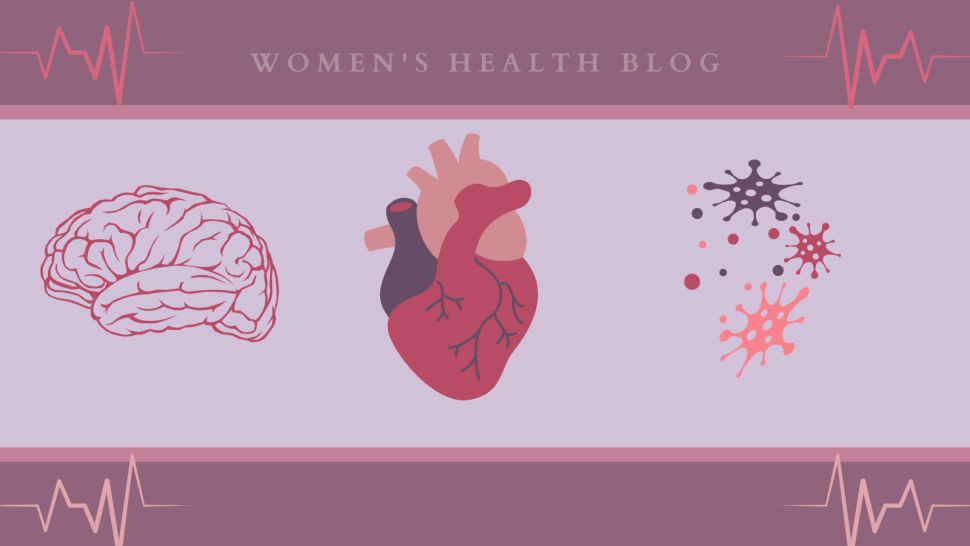Author: Emilie Théberge, MSc. Medical Genetics, Clinical Research Coordinator (University of British Columbia/Vancouver General Hospital) Editors: Romina Garcia de leon & Shayda Swann (Blog Co-coordinators).
Published: December 30th, 2022.
Note: Biological sex (i.e. female, male) is not the same as gender (i.e. woman, man, nonbinary, Two-Spirit, etc.), which is a social construct. Throughout this blog post, the cited literature considers the term “women” to equate to cisgender females, and the term “men” to cisgender males. This post’s cited conclusions of sex differences are under researched in reference to transgender and non-binary individuals, as well as those with non-conforming gender identities. Read more
When does stress overwhelm the body to the point that it causes a state of mental and/or physical illness with an accelerating feedback loop? If the cause of stress is unremovable, how can we adapt and find hope?
A large-scale wildfire may cause short-term (acute) stress to someone nearby, but there is also a defined endpoint when the fire is put out and no longer a threat. However, there can be long-term (chronic) consequences to one’s lungs and the local environmental ecosystem This wildfire metaphor may be translated to the acute and chronic mental and physiological adaptations caused by stressful events. Everyone has different thresholds of stress tolerance based on their lived experiences and biological (genetic) susceptibility to how their bodies manifest this stress.
Despite being half of the world’s population, I am shocked at how little research in psychiatric and neuroscience is dedicated to studying sex differences and women’s health. Approximately one in four Canadians were estimated to have depression in 2021 – and across borders, depression rates are consistently reported twice as high in women (20%) than in men (10%). How much of this is attributed to biological sex differences? Do the physical manifestations of mental stress and depression differ between the sexes? I decided to explore these ideas in my thesis.
This recently published article on the “immunometabolic theory of depression” piqued my interest. Most literature on depression focuses on dysfunction within the brain, ignoring the context of its link to the cardiovascular and metabolic systems. Recent genetics literature on depression has pointed towards genes and molecular pathways that implicate the immune system, specifically chronic-low-grade inflammation, as a key driver of depression. The brain controls the perception of stress, and the heart reacts to it. Chronic low-grade inflammation is a result of this system staying “on'' too long after the perceived threat has passed.
Depression is a systemic and whole-body concern that can affect our cardiovascular system. I developed a keen interest in exploring these connections when working with patients who believed that stress triggered their cardiovascular disease onset. Heart disease does not occur overnight. Chest pain to the point of a heart attack comes from a complex interaction of metabolic and immune factors that build up over time from imbalances in the body (i.e. from stress). This can manifest as plaque in the large blood vessels with coronary artery disease or dysfunction of the smallest blood vessels with microvascular dysfunction. Traditional risk factors such as high cholesterol, diabetes, high blood pressure, smoking, and obesity, may also have different effects between men and women.
In my thesis, I studied a sample of over 16,000 people from the Canadian Longitudinal Study on Aging (CLSA) cohort of 50,000 people and found sex differences in the genetic and cardiometabolic risk factors associated with depression. Women with a history of clinical depression were at higher odds of having comorbid histories of heart disease, diabetes, hypothyroidism (which results in slower metabolism), and a higher “genetic risk score” for depression. However, men with depression did not show significant relationships with these conditions, in comparison to men without depression. Among men, high blood pressure was a significant risk factor, while high genetic risk was not. Younger age and lower annual income contributed the most to my statistical models for both sexes.
Depression is not just in the head, it’s a whole-body dysfunction to cope with stress. In consultation with your primary health care provider, you can make a habit of checking on your body through regular health examinations and seeking support for your mental health. Mental and physical health are interconnected, and gradual mental and physical decline in our youth have the potential to snowball into early life-threatening heart disease. It is imperative that we talk about the individual and collective actions that we can take to treat depression, especially in this post-COVID era. This can take place in our friend groups, families, and workplaces – as we think about long-term solutions instead of “quick fixes.”
